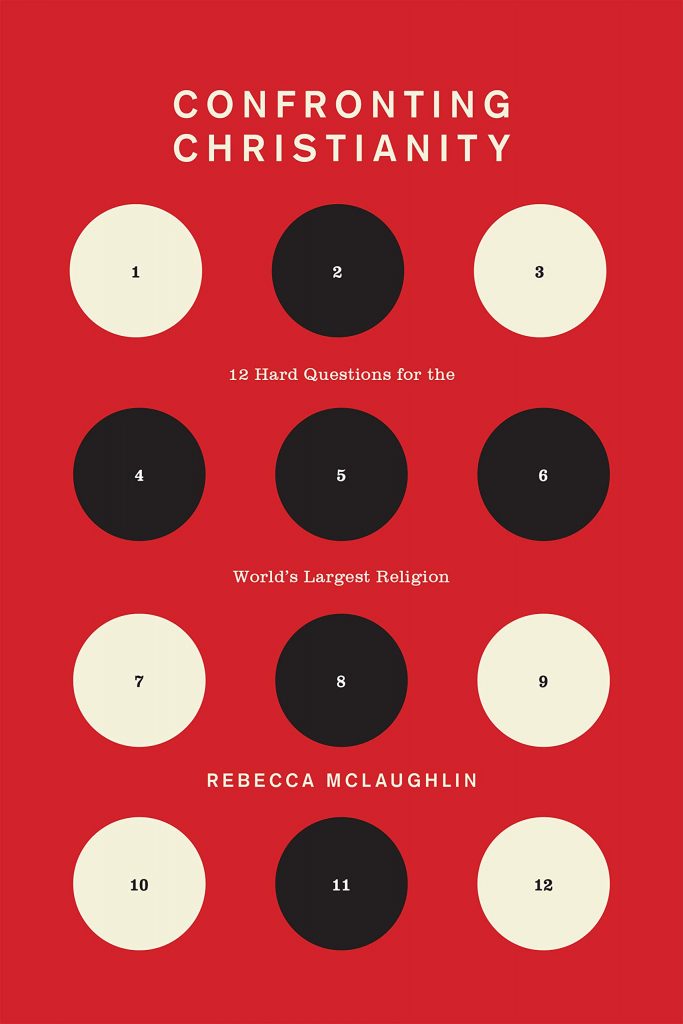
by Brian Hobbs | Oct 2, 2019
Have you had one of those weeks you
felt like you’re on the Titanic while it’s sinking? Day after day, week after
week, your problems seem to persist and magnify.
We have all been there. Everyone—even
followers of Christ—goes through suffering and periods of great difficultly.
What separates Christians from unbelievers, though, is what—or rather Who—we
can call on during times of trouble.
What also distinguishes us is how we view
and respond to our problems. C.S. Lewis, in his masterpiece, “The Problem of
Pain,” said, “God whispers to us in our pleasures,
speaks in our conscience, but shouts in our pain: it is His megaphone to rouse
a deaf world.”
No one wants trials to
come. Indeed, we long for a day in which our difficulties cease and we dwell
with the Lord, unstained by sin, pain and problems. In the meantime, God can
use our present troubles to draw us closer to Him.
History tells us that,
after the Titanic struck the iceberg and began to sink into the ocean, the band
aboard continued to play music for the passengers. According to sources, the
last song played by the musical group, each of whom would perish in the
tragedy, was the hymn “Nearer, my God,
to Thee.”
Consider the dire circumstances aboard
the Titanic—and in your own life—as you ponder these hopeful lyrics:
“Nearer, my God to Thee,
Nearer to Thee.
E’en though it be a cross
That raiseth me,
Still all my song shall be.
Nearer, my God, to Thee,
Nearer, my God, to Thee,
Nearer to Thee.
“Though like
the wanderer,
The sun gone down,
Darkness be over me,
My rest a stone,
Yet in my dreams I’d be
Nearer, my God, to Thee,
Nearer, my God, to Thee,
Nearer to Thee.
“There let my
way appear
Steps unto heaven;
All that Thou sendest me
In mercy given;
Angels to beckon me
Nearer, my God, to Thee,
Nearer, my God, to Thee,
Nearer to Thee.
“Then with my
waking thoughts
Bright with Thy praise,
Out of my stony griefs
Bethel I’ll raise,
So by my woes to be
Nearer, my God, to Thee,
Nearer, my God, to Thee,
Nearer to Thee.
“Or if on
joyful wing,
Cleaving the sky,
Sun, moon, and stars forgot,
Upward I fly,
Still all my song shall be,
Nearer, my God, to Thee,
Nearer, my God, to Thee,
Nearer to Thee.”
Today, if you
are struggling, call out to God (Psalm 86). Ask Him to bring you, as you walk through
your struggles and trials, nearer to Him.

by Amy Spear | Oct 1, 2019
Mark 2:15—“While he was reclining at the table in Levi’s house, many tax collectors and sinners were eating with Jesus and his disciples, for there were many who were following him.”
Arts and crafts are one of my girls’ favorite things to do
at the table! The more glitter, shine, colors, sparkle—man, that is what we are
all about!
They find so much joy being creative, using their God-given
artistic abilities. They learn to work together and encourage each other as
their creation comes to life.
But let me tell you, it makes the biggest mess you have ever
seen! My table has the scars to prove it. Dried on glue, stains from the paint,
glitter stuck between the cracks. UGH! It will never be the same again!
In the grand scheme of things, it is so worth it.
In Mark 2 we see a man named Levi get an invitation from
Jesus to “come follow me.” He immediately gets up, leaves all his possessions
and follows Jesus.
Now this man was a tax collector. The Jews in this time
considered a tax collector to be at the bottom of the social list along with
murderers and thieves. To say the Jews disdained tax collectors would be an
understatement! They wanted nothing to do with them.
I’m sure Levi was well aware of the scars he carried. Like
most tax collectors of his time, he probably stole money from people, cheated
them for his own personal gain and treated people unkind (No wonder the Jewish
people didn’t like him). It would be safe to say he had made a mess of the life
God gave him—having dried glue, stains and glitter in between the cracks of his
life.
But instead of avoiding the tax collectors, Jesus responded
differently. He not only wanted to talk with Levi; He wanted to eat with him.
God’s eternal salvation is for all mankind—not just the
“good” people, the “worthy,” the “churchy” people, but even the lowliest of all.
Jesus came to heal the brokenhearted and hurting, to give them a hope and a
future—something the Pharisees couldn’t understand. Or maybe more accurately,
they didn’t want to understand.
Jesus was going against everything the Pharisees had been
taught and what they themselves were teaching in the synagogues. They
wanted to be in charge; they wanted to teach their way; they wanted
people to listen to them and them alone! Jesus was ruining their
plan!
Jesus reached out to those messy people and told them they,
too, could be worthy of a God who saves. Jesus was an expert in taking the old
and making it new, taking what society said was unworthy and making it worthy
again. In fact, he tells them that is the exact reason he came. “It is not the healthy who need a doctor, but
the sick. I have not come to call the righteous, but the sinner” (Mark 2:17).
When I sit at my stained-covered table, I am reminded how my
life is tarnished with things too. I have made a mess of the beautiful life God
has given me. I have taken His blessings, protection and provisions and wasted
them on selfish things. Living my life with my own intentions instead of His.
But Jesus is in the restoration business!
No matter how many stains or blemishes I may have, He loves
me still! He wants to renew the old and clean up the mess I have made!
Thank goodness I have a Savior who has the power to do all
He has promised!

by Ryan Smith | Sep 30, 2019
Books on
Christian apologetics aren’t casually considered must-reads.
We associate
apologetics with academia, doctrinal debates and something pastors do in
comment sections of blogs.
But still, we
have questions. Our world has questions. Our neighbors, co-workers, family
members, all have questions about Christianity that often go unasked or
assumed. Somewhere between the church doors on Sunday morning and the quiet
solitude of our inner thoughts before sleep, we often think, “Yeah… but what
about…?”
Is it okay to
confront Christianity?
Questioning the
Christian faith is okay – even for Christians. Throughout the Scriptures, we
find even the most devout followers having questions, confronting issues and
having to wrestle with tough circumstances and differing worldviews. Even more
today, in a growing climate of Christian hostility and moralistic relativism,
one may wonder if one can indeed face the head-wind of questions buffeting
Christianity’s doors and still stand firm.
Whether we think
so or not, we live in a day when Christianity is challenged in both public
discourse and private vitriol. While the questions may echo in the minds of
those struggling with faith both inside and outside the church, all too often
these same questions don’t sound from our lips or resonate from our platforms.
This is why the
book Confronting Christianity by
Rebecca McLaughlin is so timely.
McLaughlin is not
your common stereotype of someone who might offer a book on Christian
apologetics. She’s relatively young. She’s not American. Though married with
children, she openly discusses her lifelong battle with same-sex attraction.
She is friends with and respected by a wide assortment of people—from Ivy League
academia to soup-kitchen homelessness—whom she engages in civil and
contemplative discussion.
McLaughlin isn’t
afraid of tough questions, and she has little interest in providing platitudes.
Confronting Christianity addresses
real issues offered from both inside and outside the church. The book proves
helpful for the committed churchgoer as well as the atheistic antagonist to
Christianity.
In fact, through
McLaughlin’s conversational, humble and vulnerable approach to writing, one
could see the Christian and the atheist both enjoying healthy dialogue together
over marked-up copies of this book and steaming cups of tea (not coffee—she’s
British).
Consider the
twelve questions McLaughlin addresses in Confronting
Christianity:
- Aren’t We Better Off Without Religion?
- Doesn’t Christianity Crush Diversity?
- How Can You Say There’s Only One True Faith?
- Doesn’t Religion Hinder Morality?
- Doesn’t Religion Cause Violence?
- How Can You Take the Bible Literally?
- Hasn’t Science Disproved Christianity?
- Doesn’t Christianity Denigrate Women?
- Isn’t Christianity Homophobic?
- Doesn’t the Bible Condone Slavery?
- How Could a Loving God Allow So Much Suffering?
- How Could a Loving God Send People to Hell?
My guess is
either you or someone you know is asking these questions. Even if you are not,
you may know the right answers but find yourself without compelling arguments
as to why you hold your positions.
McLaughlin is
disarming yet firm in her convictions. She is not afraid to chase steep rabbit
trails or shed light on dark corners of Christianity’s history. In all of her
attempts to answer today’s biggest critiques of Christianity, however, her tone
is respectful, understanding and one that is to be emulated.
Confronting Christianity is the book you
didn’t know you were looking for. Even if you’ve never read a book on
Christianity in your life—much less one on Christian apologetics—you will find
this book captivating. You may find answers to your questions. You may find
even more questions you weren’t even asking. Either way, you will find sound
Biblical truth presented with understanding and compassion.
Don’t be afraid
to confront Christianity. I know you will be helped if you do so with this
book.

by Chris Doyle | Sep 27, 2019
Greetings!
I decided to have this week’s DHD focus on Ken Burns’ phenomenal eight-part documentary series “Country Music.” I watched each episode over the last two weeks and was amazed how well it was presented and by the education it offered. I said earlier this week that “Country Music” is so good it should be worth getting college credit hours after watching it.
Here’s six takeaways I got after watching “Country Music.”
1. Carter
family/Jimmie Rogers
There are many who were instrumental in founding American Country Music. Ken Burns did about as good of a job as anybody would in highlighting the major contributors. But all country music experts will say country music got its origin from The Carter Family and Jimmie Rogers
The Carter Family, made up of A.P, Sara and Maybelle, brought the Gospel Music flavor to country music. Jimmie Rogers was responsible for the bar songs and the more secular sounds.
They were presented well in the series, and I enjoyed
learning about the Carters’ and Rogers’ influence.
2. Hank Williams
“He made you think he was singing straight to you,” said
Bill Malone, country music historian, about Hank Williams.
“Hank Williams had the guts to put into words what we were
all thinking and feeling but were too embarrassed to say,” said Fred Foster,
record producer.
Country music started with mostly positive messages in its songs. The first one to sing about “real life” was Hank Williams. He put country music on another level and helped usher in the “Golden Era” of country music.
He lived a rough life and had a turbulent marriage with his
wife Audrey. Many of his sad songs came from his life experiences. Many will
say they related to Hank’s music. Everybody will say country music owes its prominence
to Hank Williams.
3. Dolly Parton
Dolly Parton’s life was another great presentation in the
series. One of the most significant element in the whole production was Dolly
Parton sharing how she wrote “I Will Always Love You,” which gained recent fame
by Whitney Houston in her movie The
Bodyguard.
Parton said she wrote the song as a negotiation piece with Porter Wagoner who had Parton as a regular performer in his TV show. Parton wanted to do her own thing, and Wagoner would not let her.
What amazed me about how Parton handled this issue is she did not get aggressive or difficult. Instead, she wrote “I Will Always Love You” to help resolve the conflict with Wagoner. The first time Wagoner heard the song, he conceded and gave Parton his blessing to move on.
The documentary then showed Parton’s first performance of “I Will Always Love You.” Whoa! This definitely succeeded Houston’s connection with the song.
4. Kris Kristofferson
There are so many fascinating stories in the series, but one
that was a major education for me was Kris Kristofferson’s life. I had no idea
how much influence he had in country music. I learned he was responsible for
writing “Me and Bobby McGee,” which was made famous by Janis Joplin.
Kristofferson was a Rhodes Scholar with an education at Oxford and was an army officer. But he gave all that up and moved to Nashville to become a janitor at a recording studio. From there, he wrote many songs that blew people away.
5. Dramatic deaths
The deaths of the prominent country music performers are
sprinkled throughout the series. Hank Williams’ tribute was powerful, as the
Burns’ series ended that episode with granddaughter Holly Williams singing Hank’s
song “I’m So Lonesome I Could Cry.”
The coverage of Patsy Cline’s death was very emotional. Next to Dolly Parton singing “I Will Always Love You,” this segment is the most memorable.
And then the scene of Vince Gill singing at George Jones’
memorial service… oh my!
6. Gospel is needed
I can’t help but think how much the Gospel is needed in the
lives of many in country music. I almost think of how sad the Book of Judges in
the Old Testament is when I reflect on some of the people mentioned in this
series.
Many, I’m sure, are or were Christians, and there is a glimpse of the Gospel, especially when Holly Williams mentioned how her grandfather knew about the redemption that Christ offers, which led to him writing “I Saw The Light.”
But I am also convicted of knowing I need to be more active
in sharing the Gospel with people and knowing how so many need to know about
the powerful mercy and grace of Jesus Christ.

by Michael Foust | Sep 27, 2019
The DreamWorks animated film Abominable opens this weekend, telling the story of a girl who sets out on a quest with two neighbors to return a yeti to its home.
Yi is a busy young woman living with her mother and
grandmother in Shanghai, China.
During the day, she makes cash doing odds jobs—taking out
trash, walking pets through the city, and babysitting small children
At night, though, she lays in bed, thinking about how things
used to be when her father was still alive. Sometimes, she even sneaks up on
the roof to play his old violin.
“She misses her dad,” her grandmother says.
If only Yi had a close friend.
Perhaps a
mythical hairy creature would help her cope. And that’s exactly what happens.
One night while playing a favorite tune on the roof of her
apartment building, Yi sees a huge, white-haired creature hiding in the
shadows. It is a …. yeti.
With an armed helicopter chasing this beast, Yi helps it
hide, and then bandages its wounds and feeds it.
“I don’t know where you come from, but you sure don’t belong
here,” she tells him.
Can Yi help the yeti find his home before he is captured and
killed by researchers?
The DreamWorks animated film Abominable (PG) opens this weekend, telling the story of a girl who
sets out on a quest with two neighbors to return the yeti, named Everest, to
his mountainous home. (You guessed it: He’s from Everest.)
It stars Chloe Bennet (Agents
of S.H.I.E.L.D.) as Yi, Albert Tsai (Coop
and Cami Ask the World) as her friend Peng, and Tenzing Norgay Trainor (Liv and Maddie) as another friend,
Jin.
Abominable is similar to other
child-meets-creature-and-learns-lesson movies of the past, including E.T., Pete’s Dragon and Home. Although it may not be as
entertaining as those other films, it’s still pretty good, and it’s filled with
positive messages about healing from grief. Moviegoers who have lost a family
member recently will share Yi’s pain.
The yeti—in case you’re not up to speed—is the mythical
creature that supposedly lives in the snow of the Himalayan Mountains. He’s
often called the Abominable Snowman.
In Abominable, Yi
and the Yeti have similar needs. They’re each lonely. They’re each running away
from something (she from reality; he from the bad guys). And they’re each
longing for something significant (her—a closer relationship with her family;
him—his home in Mt. Everest).
The movie is mostly family friendly, although it does have a
few worldview elements that will concern some parents (more on that
below).
Warning:
minor/moderate spoilers!
(Scale key:
none, minimal, moderate, extreme)
Violence/Disturbing
Minimal/moderate. The movie opens with Everest being chased
by the bad guys. (They had captured him and stored him in a research lab.) He
escapes and then is hit by a car, but survives. Everest growls several times in
the film, but he’s mostly a lovable creature who just wants to play. (He’s a
yeti child.) Those bad guys don’t give up and chase Everest throughout the film
with tranquilizer guns. We see unmanned drones corner Yi and her friends. The
film’s ending might frighten sensitive children. (Yi is pushed off a tall
bridge and is presumed dead, but survives.)
Sexuality/Sensuality/Nudity
Minimal. Jin’s popularity among teens girls is a running
joke. We see him preparing for a date.
Coarse
Language
None. Two instances of “oh my gosh.” One “you idiot.”
Other
Positive Elements
Yi’s mother and grandmother truly care for her. They’re also
patient with her when she is frustrated with life.
Other Stuff
You Might Want To Know
The grandmother jokes that she only plays basketball “for
money.” Everest the yeti is magical.
Peng and Yi say they learned that the stars are “ancestors
who watch over us.”
Yi, while on her way to Mt. Everest, stops at the Leshan
Giant Buddha, a Mt. Rushmore-type sculpture of Maitreya (or the Buddha yet to
come).
Life Lessons
Friendship
is a blessing: Yi
needs a friend, and she finds it in Everest and two neighbors.
Arrogance is
not attractive: Yi’s
neighbor/friend, Jin, considers himself a lady’s man who dresses like he
belongs in a boy band. He’s also self-centered.
Grief is a
process: The
movie doesn’t tell us how long Yi has been without her father, but it implies
it’s been several months, if not longer. Yi carries around a picture of her
father in her violin case. She acknowledges she’s stayed busy to suppress the
pain—and has yet to stop and cry.
Children
need a family:
Yes, teens sometimes act embarrassed around parents, but Abominable affirms the necessity of the family structure, including
that of a mother and father. (Her dad formerly played the violin for her.)
Worldview/Application
First, the good. Abominable,
much like Pete’s Dragon, can teach
children a simple lesson about our world: Science can’t explain everything.
“Yetis don’t exist,” Jin tells Yi. But in her world, they do. Similarly, in our
world, people often reject the existence of God, pointing to (supposedly)
scientific evidence. Kids innately know better.
Now, for the problematic. Abominable isn’t as overt in its unbiblical worldview as Moana or Coco, but it’s still there. We learn that Yi’s father longed to
take her to the Leshan Giant Buddha statue, and then we see it up close, as she
takes her time exploring it. (“What’s that?” my 11-year-old son asked. “A false
God,” I told him in a two-second movie explanation.) We also hear Peng say that
stars are “ancestors who watch over us.” Except for that one line, little-to-nothing
else is heard about traditional Chinese religious beliefs.
Everest the yeti is magical, and he is able to control
nature—including the growth of flowers and other plants—simply by closing his
eyes and humming. (His body glows, too.) We are told he “talks to nature.”
If you take the children, then be prepared for a worldview
discussion on the ride home.
The film’s message about grief is a good one. Yi learns to
celebrate her father’s memory and to rely on friends and family members for
healing. Of course, the Bible has much more to say on the topic (Psalm 34:18, 2
Corinthians 1:3-4) that is worth exploring.
Sponsors
Little Debbie, Luigi’s Italian Ice, Bearpaw, Yogurtland, FAO
Schwartz and East West Bank.
What Works
The animation. The scenic landscapes. The education in
cultural differences. (Grandma cooked dumplings that looked different than
anything I’ve eaten.)
What Doesn’t
Everest’s magical powers. Yetis are Jedi-like? (So, that’s
why we never seen one, huh?)
Discussion
Questions
1. What helped Yi heal emotionally?
2. What does the Bible say about grief and healing? Do
people heal from grief differently?
3. What was the movie’s message about social media? About
arrogance? Was Jin likeable?
4. Is there someone you need to reach out to who is
grieving?
Entertainment rating: 3 out of 5
stars. Family-friendly rating: 4 out
of 5 stars.
Abominable
is rated PG for some action and mild rude humor.

by Caleb Moore | Sep 26, 2019
There is a war in Congress at the moment. A war that has
been going on in the background for many years has become something that is now
front and center for all of us.
You can’t turn on the television, radio or even talk to
coworkers without the subject of this war being brought up. The question isn’t
if the war is real. The question we should ask should be, “Is it our war?”
How involved should Christians be in this? What side should
we take? Do our biblical morals hold us to a certain political party or even a
certain political person? Not at all. I may still be young, but I have lived
long enough to meet good men and evil men with both liberal and conservative
affiliations.
Whatever attack one can make on any political party, there
is a good chance that the same attack could be laid on the other party in the
past or in the future. That’s my attempt to say that no party can claim to be
the one that fully and accurately presents the will of the living God at all
times.
Since no side can fairly be called God’s side, which side do I choose? Where do I stand in this war?
This is one of the things I love about being a Christian. I
don’t believe in the war. The war is fake. The war may seem real to many people,
especially to those who have chosen their side, but I choose Jesus, and in
doing so, I chose to have a different view on the worldly wars.
One of the many places where I find the way to view all of
this is in 2 Corinthians 2:14 which reads, “But
thanks be to God, who in Christ always leads us in triumphal procession, and
through us spreads the fragrance of the knowledge of him everywhere.”
You only have a triumphant procession once the war is won.
Paul claimed that he was not participating in the war. He was marching behind
the One who won the war.
Yes, the war has already been won. For Christians, the war
is not against flesh and blood, not against political parties, but against the
forces of evil that try to stop the progress of Gods truth.
Presidents will comes and go, but the real King sits on His
throne, and there He will reign forever.
Because I have been set free, it is my duty become a whistleblower of the Good News. It is my job to let those who are twisting in the winds of political discourse know that the war is over. God has won, and sin has been defeated. Typically a whistleblower is exposing some corruption at the highest level. I think this is a title we as Christians can claim for ourselves. We can remind the world that the only reason the government has any power is because God has allowed it for a time.
So let us make the Good News the front page news. Do not get so enraptured by world drama that we forget that the real war has been won. We can march behind our King and let the rest of the world that all other false gods have been defeated, even the god of worldly power and politics.

by Ryan Smith | Sep 24, 2019
It’s happening.
If you’ve been
following the landscape of television over the past few years, you’ve noticed
the cresting wave of services like Netflix, Hulu and Amazon Prime leaving
traditional cable television powerhouses clamoring in the shadows.
Of course, as the
digital revolution has taken place, it has seen the deconstruction of many
media types (I’ll forever miss you Compact Discs) and has created new
formidable foes for media outlets previously considered to be untouchable
mainstays. It’s showbiz Marxism.
Like any teenager
will tell you, however, the adjustment from sprouting youth to king of the
mountain is an awkward transition and has its unfortunate bumps along the road.
When our consumption habits change, there is often a fair amount of
entertainment indigestion.
Many believed the
most significant adjustment for our society was in cutting the cord and letting
cable fall into the abyss through the echoes of standard definition TV and
headphone jacks. Consumers (as I’m sure they told you…multiple times) gave up
on traditional cable packages and opted for single services like Sling,
YouTubeTV, Hulu, Roku and others to satisfy their immediate viewing desires.
Of course, where
the money flows the company goes. Sensing this lemming stampede, major networks
have begun launching their own places for digital premium content. No longer
can one simply tune in to the game on ESPN. You now need to buy ESPN+. Want to
see the newest NBC show? You’ll have to fork over the cash for Peacock, the NBC Universal streaming
service.
All of this is in
response to companies like Apple and Disney seeking to consolidate content and
place it behind protective barriers from the everyday consumer. It’s an all-out
cash grab, and fortresses are being hastily constructed. Each one is
accessible, of course, for an additional $4.99 per month.
If this sounds
confusing to you, then you are in the right boat. Not only is this a
frustrating time for the average Joe, but it’s a time when more is being asked
from the consumer and less is available for the price.
So what is one to
do in this shifting climate? Quit.
Now may be the
best time for you to quit TV. If that sounds impossible, at least consider this
a time to drastically reduce the hold entertainment has in your life. According
to a recent Neilson report, the average American watches more than 34 hours of
television each week (including movies and other video-related screen time).
That is almost a day and a half per week. What could you do with an additional
day and a half at your disposal?
In a recent
article for lifehack.org, writer
Craig Dewe observes several concerns directly related to time spent in front of
TV shows.
Dewe observes not
only the rampant negativity displayed in everything from reality TV to network
news but notes, “In comedies, we laugh at the stupid/overweight/socially
awkward/racial stereotype/different people. The news is filled with stories of
pain/suffering/disaster/death and arguing. Drama has to be about problems in
order to create the drama. All of this is affecting your outlook on life and
the way you see the world.”
Alongside the
fact that TV creates unrealistic expectations and feelings of inadequacy, Dewe
notes the basic effects of sitting immobile for hours and losing grip on the
battle for self-discipline can harm our bodies physically, our minds
emotionally and our spirits spiritually.
If you have ever
considered pulling back on entertainment programming, there has never been a
better time than now. As the networks are shifting from their global Pangea and
every commercial is a carrot for another $4.99 per month to hand out, consider
sitting this one out.
If you are
someone who benefits from certain TV shows, consider time away as a sabbath or
a summer hiatus. Pull the plug and wait until the hierarchy is re-established
and content can flow to the consumer in ways that benefit not just your mind,
but your wallet as well.
Quit TV and see
what happens. Go outside. See a human. Read a book. Make an informed decision
of your choosing. You may find that real life can offer all the entertainment
you need.
Leave the drama
to the networks.

by Chris Doyle | Sep 20, 2019
Greetings!
Another week, another DHD. Thank you for taking the time to
read my through my thoughts on six timely topics.
1. Wax on ‘Reasonableness’
Everybody should read Trevin Wax’s article “Reasonableness
in an Age of Outrage.” There is a lot of extreme verbiage spewed on social
media, and Wax’s article is a constructive response, especially for Christians.
“The way Christians stand out
in a contentious environment,” Wax wrote, “is by being a voice of reason, by
spreading grace in a culture of judgment. Posture matters as much as principle.”
Wax said we focus more on
hyperbole and away from reasonableness. I wholeheartedly agree.
Also, I don’t always need to
get my point across. Sometimes, it’s more important to try to understand those
who oppose my view, not that I don’t have confidence in my views (believe me, I
do) but rather to seek genuine dialogue. If all I do is talk over people,
getting into a shouting match, what have I accomplished?
“The joyful Christian who
models reasonableness is someone who knows there is nothing to lose,” Wax said.
“We have nothing to prove. We are free to bear with people longer than others
think we should. Gracious people are not easily offended.”
I need to be more gracious.
2. French vs. Ahmari
Speaking of Wax, he recently
recommended a
New Yorker article that featured
the clash between David French and Sohrab Ahmari.
For the most part, I am a
David French fan, even though I don’t always agree with him. I’m not to the
level of being anti-Trump that he is. But French is a solid Christian
conservative writer who makes many good points on numerous current issues.
By the way, just to clarify,
I am not anti-Trump. I have mentioned in the past that I did not vote for Donald
Trump in the previous presidential election, but he has done some things I find
favorable as well as some things that cause me to be disappointed (mostly his
Twitter comments).
However, French and Ahmari
are both social conservatives who have debated through written articles mostly
on a recent issue of a library hosting a “Drag Queen Story Hour.” French
believes shutting down such reading event is against the First Amendment and
would cause other groups and entities to clamp down on Christian groups wanting
to meet in similar settings. Ahmari believes exposing young children to a transgender
in such setting is harmful. Even though I get French’s viewpoint, I have to
agree with Ahmari (in the New Yorker
article, Al Mohler is referenced disagreeing with French too).
The article gives an
objective view of both men. I learned a lot about French, and even more about
Ahmari, since I never heard about him before the recent squabble between both
men. It’s a worthy read.
3. Duke vs. Young Life
Speaking of First Amendment
rights, reports broke this week that Duke University’s student government
senate unanimously
rejected a Young Life chapter because the Christian organization “appeared to violate a guideline that every Duke student
group include a nondiscrimination statement in its constitution.”
Young Life’s
policy allows for those who engage in sexual misconduct or those who practice a
homosexual lifestyle to be “recipients of ministry,” meaning they could
participate in Young Life activities, but they are not allowed to serve as
staff or volunteer workers.
I did not know
that Young Life has expanded to be a college ministry. I remember the
organization being involved with middle school and high school students. I’ve
heard great things about Young Life and have friends who served with the
ministry.
Similar conflicts
have happened at other colleges across the country, including the University of
Iowa, and the Christian ministries have been successful when challenging the
schools. Duke, however, is a private university, so this may not be as easily
resolved.
On his Wednesday
edition of The Briefing, Mohler considered the Duke student senators were
cowardly for rejecting Young Life.
“When I say that this decision is cowardly,” Mohler said, “it
was very easy for the young senators of the Duke student government to turn
down Young Life and to do so unanimously declaring that it did so because of
the policies of Duke concerning student organizations and the necessity of
non-discrimination as it is described here. You’ll notice that the very same
student government fails to acknowledge that if they are and were consistent,
they would have to disaffiliate organizations that are affiliated with the
Roman Catholic church, because after all, you do not have to be very good with
Google — and trust me, the students at Duke are very good searching the
internet — to find out what the Roman Catholic church officially teaches.”
4. Bennett is ‘blessed,’
turns down raise
Shifting to a different ACC school, Virginia men’s
basketball coach, Tony Bennett made the news this week, announcing that he
turned down raise and said he is “blessed beyond what I deserve.”
Sports Spectrum, a Christian sports journal, reported on
Bennett’s raise rejection that he wanted to help other programs in the athletic
department.
Bennett also gave this comment on 2018 Sports Spectrum
podcast:
“The Lord is more than ample.
He’s enough. In Him there is all sufficiency. In Him there is great joy and
great rest, regardless of what the world is screaming at you through great
success or through failure.”
5. Cancelling mission trips?
Last week, I read Darren
Carlson’s article “I’d
Probably Still Cancel Your Short-Term Mission Trip.”
I discussed this article with
a co-worker, and we both agree that Carlson makes good points and offers great
suggestions, but his approach was not good.
Carlson does not acknowledge
that God is the One in control of mission work, even if those on the trip don’t
have proper motives. A friend of mine changed his whole perspective when he
went on a mission trip. As a videographer, he went with a group to Haiti and
considered he was not the one involved in the work but was just to document
what others were doing. He view changed greatly, and now my friend has a deep
passion for missions.
I do agree with Carlson’ list
of eight ways to make short-term mission trips more fruitful.
6. Loving ‘Country Music’ documentary
Have you been watching Ken
Burns’ documentary “Country Music” on PBS? Burns is known for his previous series
on Civil War, Baseball and National Parks, and I think he meets the same level
of quality in this latest series.
There’s a lot I didn’t know
about the history of Country Music, and this documentary reveals how the genre
developed and affected American history. Shows start again on Sunday, Sept. 22
at 7 p.m. on OETA Channel 13 in Oklahoma City.

by Michael Foust | Sep 20, 2019
The science fiction movie ‘Ad Astra’ opens this weekend, telling the story of an astronaut who travels the Solar System to save Earth.
Roy McBride is an introspective and emotionless man who has
always lived in the shadow of his space-faring father—the great H. Clifford
McBride, who was the first astronaut to travel to Jupiter and then Saturn.
Roy was 16 when his father left Earth. He was 29 when his
father’s spaceship stopped transmitting a signal, apparently due to a tragedy
near Neptune that claimed his life.
The youngest McBride—who also became an astronaut—still
hasn’t recovered from the loss.
“I’m angry,” Roy says. “… He left us.”
Roy, though, has moved on in life by keeping his emotions in
check. He doesn’t make decisions on a whim. His choices, he says, are always
pragmatic.
He’s also calm under pressure, which is one reason why the
U.S. government wants to send him through the solar system to investigate a
threat to Earth.
It seems electrical surges from space—technically, the
“uncontrolled release of antimatter”—are causing explosions all over the
planet. Thus far, 43,000 people have died, and if it continues, the rest of
humanity will be gone, too.
Can Roy find the cause before it’s too late?
The science fiction movie Ad Astra (PG-13) opens this weekend, starring Brad Pitt (Ocean’s series) as Roy, Tommy Lee Jones
(Men in Black series) as Clifford
McBride, and Donald Sutherland (The
Hunger Games series) as Thomas Pruitt, a family friend.
The film is set in the “near” future, when civilians can
travel to the moon and a trip to Mars takes less than three weeks.
Ad Astra, though, is not a shoot-em-up space
film. Instead, it’s quiet. And slow-paced. And cerebral. And entertaining. And
wonderful. Some critics are comparing it to 2001:
A Space Odyssey, yet it tackles some of the same weighty subjects of more
recent science fiction movies like Arrival
and Interstellar.
Ad Astra examines what’s most important in
life—family and love and even faith. It encourages us to find the right balance
between our home life, our work and our hobbies. It even reminds us of the
uniqueness of our planet—and urges us to be grateful for it.
Except for a few unnecessary strong words (more on that
below) and a few bloody images, it could have been rated PG.
Warning:
minor/moderate spoilers!
(Scale key:
none, minimal, moderate, extreme)
Violence/Disturbing
Moderate. People fall off a tall tower. (We don’t see them
hit the ground.) Astronauts engage in a laser-gun battle on the moon with
pirates; a few people are killed. A primate attacks astronauts in space,
killing one of them. (We see a bloody face.) We see a fight inside a spaceship.
(Three people die, although it’s not bloody.)
Sexuality/Sensuality/Nudity
None.
Coarse
Language
Moderate. H-ll (3), GD (3), f-word (1).
Other
Positive Elements
We see an old clip of Roy’s father, from space, saying: “I
thank God” for everything that’s been accomplished. He adds that he’s “feeling
His presence so close”
Later, when an astronaut dies in space, the crewmates
prepare the body; before pushing it into space they say a Catholic prayer: “May
you meet your Redeemer face to face and enjoy the vision of God forever.”
“Amen,” another astronaut adds.
Life Lessons
Emotions are
not a curse: Roy
spends his life trying to suppress his feelings, which prevents him from
experiencing the greatest of emotions, including joy and love. Before the film
ends, he corrects his ways.
Family is
priceless: Roy,
while in space, expresses regret for the way he treated his wife. He has power
and fame, and yet is focused on his home life—millions of miles from Earth.
Humanity is
depraved:
Sure, you already knew that, but watching nations battling for minerals on the
moon drives this point home even further.
It’s never
too late for redemption: I won’t spoil the plot for you, but Roy gets a second chance—in
several areas of life.
Earth is a
blessing: Once
they reach the outer limits of the Solar System, the astronauts begin yearning
for life back home—not only for their families but also for things like oceans
and birds and trees.
Worldview/Application
Spoilers ahead! The best movies celebrate the good in life.
They discourage the bad. They force us to examine our own lives. They encourage
us to live better lives.
Ad Astra does all that.
Roy’s father traveled to the other side of the solar system
looking for intelligent life, but abandoned the very intelligent life closest
to him—his own family. He chased after his dream at the expense of those who
loved and needed him, including his son. “He missed what was right in front of
him,” Roy says.
It’s only science fiction, right? Not really. How many of us
make that mistake every week or every day? We chase our dreams, our hobbies and
our paycheck and forget about our family back home. As his wife tells him: “You
seem preoccupied with your work. I feel like I’m on my own all the time… You’re
so distant, even when you’re here.”
Discussion
Questions
1. Why do we tend to embrace the fleeting at the expensive
of what’s most important in life?
2. When are emotions a good thing? A bad thing? What’s the
key to finding the right balance?
3. Can regret be a positive emotion? Was it a good thing for
Roy?
4. Did you like the ending? Why or why not?
Entertainment rating: 4 out of 5
stars. Family-friendly rating: 3.5
out of 5 stars.
Ad Astra is
rated PG-13 for some violence and bloody images, and for brief strong language.

by Angela Sanders | Sep 19, 2019
Bzzt-bzzt.
From a deep sleep, I sit up straight and grab my phone.
It’s early. Too
early. Something must be wrong.
Turns out, it isn’t.
Not really.
A bleary-eyed text scan reveals everyone is safe and
healthy. No one is stranded, threatened,
scared.
Still, my heart beats hard, each thump sending waves of ache
and longing down my arms and into my fingertips.
Someone is unhappy. Deeply
unhappy.
Too far away to offer even a hug, I can’t fix it, and the
focus I worked so hard to cultivate as I head into another full day of creative
work is gone.
Ugh.
This happened a long time ago, but I’m telling you, friends,
sometimes I feel like I’m living three lives at once! When it gets to be too much, I try to remind
myself of the following truths.
Happiness is relative. Happiness is an emotional response to stimuli. We may not be able to change those stimuli, but
we can adjust our focus, perspective,
and expectation.
Happiness isn’t the baseline. Happiness falls on the positive side of the
sliding emotional scale. It is not the
norm. We must be grateful for the
upswings.
Happiness doesn’t last. Human emotion, good or bad, cannot be maintained forever. Sooner or later, we all return to baseline,
if only for a little while.
Happiness isn’t the end goal. Christ-likeness is.
If God put Jesus through trials to shape Him (Heb. 2:10), we should
expect Him to do the same with us.
Happiness can actually interfere with
God’s plan. Happiness breeds complacency. We don’t tend to tinker with things we don’t perceive
to be broken. If God wants us to change
trajectory, He often applies a little pressure or removes an element of comfort.
Unhappiness pushes believers to
Jesus. Only the hurt need healing, and those
who know Jesus know He is the cure. If
they don’t go to Him first with their pain, they will once they discover
nothing else satisfies as deeply or for as long.
Unhappiness breeds compassion. We can’t effectively minister to those with whom we can’t
identify. If we hope to help the
hurting, we must experience some level of hurt ourselves.
You can’t fully appreciate happiness until
you experience unhappiness.
Those who never know unhappiness never
cultivate joy. Happiness ebbs and flows because it
relies on factors in constant flux. Joy
remains because it depends on Jesus, Who does not change (Heb. 13:8). If we never find ourselves tossed about by
emotion, we may never reach for the rock of our salvation or learn to abide in
His provision.
If the Enemy is responsible for my
children’s unhappiness, I could be the target.
If I allow
myself to be crippled by the Enemy’s attacks, doesn’t it stand to reason he’ll
keep his aim on my children steady? Also,
parenting is only one of the jobs God has given me. No matter my kids’ interpretation of or response
to their own circumstances, I have a calling of my own and a life of obedience
to live (Eph. 4:1).
The truth is, no matter how hard I try to retrain it, my
heart will always beat for three people.
It helps to know, however, that the weight of responsibility for my
children’s happiness is not mine to bear.
It’s theirs.
And God’s.
That’s great
news, not only because a momma’s hugs and kisses only go so far, but because the
Father alone knows what’s best both for my kids and the Kingdom. Speaking of which, Heaven—with its dried up tears and all (Rev. 21:4)—is
looking better all the time, don’t you think?









